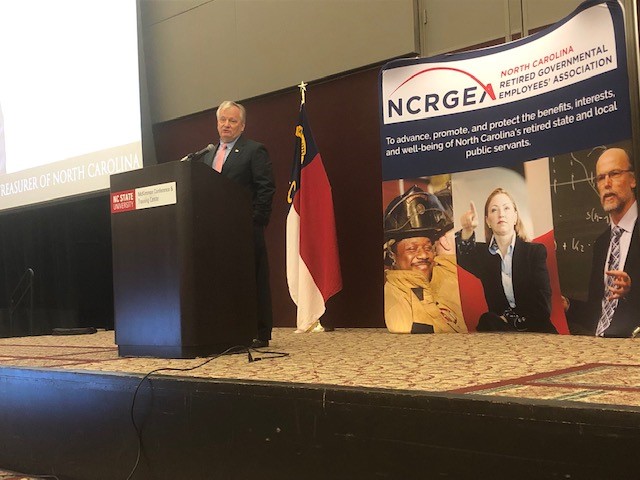Have You Left Unclaimed Funds on the Table? Here’s How to Find Out.
Get AMBA’s tips to find money you may have lost.

Wouldn’t it be nice to have a little extra money in your savings? Even better is if it’s money you’ve already earned but forgot was yours.
You’re not alone. Lost assets have become a common and concerning trend in recent years. One report indicates that the United States has just under 30,000,000 forgotten 401k accounts that hold a staggering $1.65 trillion in assets. One reason is the increased trend and frequency of people switching jobs during their working years.
Missing out on funds you’ve earned – especially if they contain significant assets – can put your retirement at risk. Fortunately, AMBA is here with simple, straightforward suggestions for you to research and locate potential unclaimed funds.
If you think you’re potentially missing out on some retirement assets somewhere, it’s worth the time and effort to track them down. Even if it has been years or decades since you contributed to the account, the power of compounding and interest could mean your retirement assets have significantly grown over time.
Check with all previous employers
Have you held multiple jobs throughout your lifetime? Make sure you haven’t left any money behind. Follow up with your past employers. Retirement plan administrators have an array of options for locating abandoned funds in an employer-sponsored account.
There are different procedures based on the value of the account:
- $1,000 or less: The employer can issue a check and mail it to your last known address. If you’ve moved since leaving a job, you may need to request a new check.
- Between $1,000 and $5,000: Employers can move funds to an IRA without your consent. You’ll need to contact them and discuss how to access the account.
- $5,000 or more: It’s likely your unclaimed funds are still in the employer’s plan. You may consider rolling over the account balance to an IRA you control.
Search your state’s unclaimed databases
One of the most common causes for unclaimed funds is people lose track of their retirement savings when they move and forget to notify past employers of their new, updated mailing address. When an employer or financial institution is unable to reach an account holder, it may turn over the account to the state’s unclaimed property office. For North Carolina, visit: www.nccash.com.
You can search for your name on the National Association of Unclaimed Property Administrators (NAUPA) website or your state-specific unclaimed property office to locate any unclaimed retirement funds that you’ve earned.
- Check the Department of Labor’s abandoned plan database: If your past employer’s plan was terminated, DOL’s Employee Benefits Security Administration consolidates information about unclaimed benefits and simplifies tracking down missing funds.
- Contact the Pension Benefit Guaranty Corporation: Did you lose track of a defined benefit pension plan at a previous employer? The PBGC can help. This organization is a government agency that ensures the value of pension benefits and helps individuals locate lost pension plans.
Track down forgotten IRAs
If you think you may have unclaimed funds through an abandoned IRA, take inventory of past bank and investment account statements. You can also directly contact any financial institution you’ve worked with to inquire about any inactive or dormant IRAs associated with your name.
These simple steps can help you recover the money you’ve earned during your career. With a little research, you could potentially find thousands of dollars waiting for you!
Another great way to keep money that’s yours: NCRGEA & AMBA’s Tax-Deferred Asset Protection. This is an excellent way to diversify savings and potentially earn more interest than with cash deposits or savings accounts. Advantages include tax-deferred accumulation of interest, a guaranteed competitive interest rate, multiple payout options, and a nursing home waiver. Call AMBA at 800-956-1228 or visit amba-review.com/NCRGEA.
Source: https://www.nytimes.com/2023/12/23/business/401k-rollover-retirement.html















